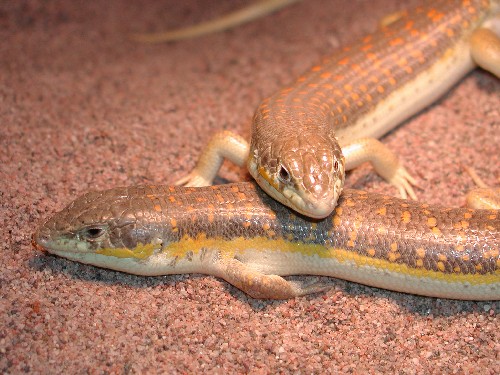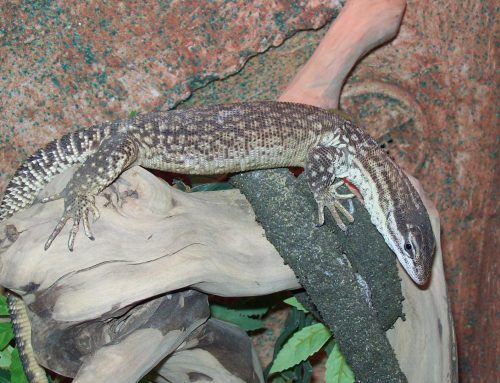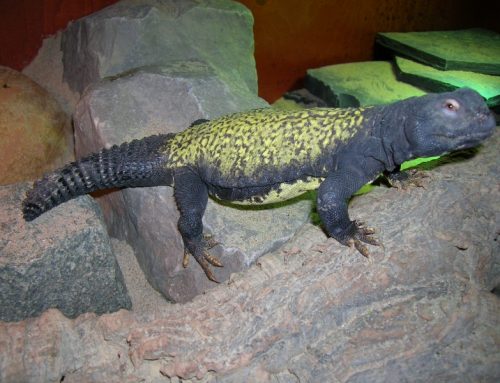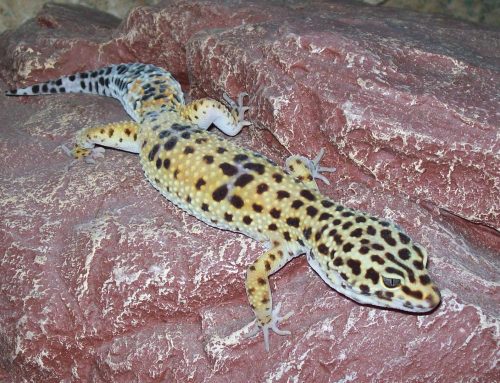Berber Skink in the North West
Please read below for information on our Berber Skinks for sale in Wigan, If you would like any more information on Appleton Exotics Berber Skinks, how to buy or care for any Reptiles in the North West, then please call us on 01942 824385
About Berber Skinks
As the scientific name suggests (Eumeces algeriensis) the berber skink originates from Algeria, but also Morocco where they inhabit hot and dry areas, both rocky and sandy. The Berber Skink can be differentiated from the very similar schneiders skink (Eumeces schneider) by the lack of a yellow lateral stripe on each side. The dorsal colour is a basic grey intersparsed with regular orange flecks and a few black scales with white flecks in them. The underside is a pale creamy yellow colour and they grow to around forty centimetres (fifteen inches) in length, of which around twenty five centimetres is tail. This species doesn’t appear to suffer from stress and quite quickly becomes accustomed to handling and can become very very tame, even coming out onto your hand when you open the vivarium door.
Berber Skink Vivarium
A four foot vivarium is suitable for a pair or trio of these lizards. Furnish with rocky areas and a fairly deep sandy substrate around two or three inches deep as the skink’s may wish to bury themselves under the sand. This is an active species which will climb on the rocks and pieces of driftwood if given the chance. Temperature should be around thirty degrees Celsius with a drop down to around eighteen degrees at night and regulated using a thermostat. A spot lamp heated to forty five degrees should be provided. Humidity is not important. Mist lightly every morning before the light comes on and provide a water bowl at all times. UVB light is required and should be provided by means of a UVB 10.0 flourescent tube.
Berber Skink Feeding
Feed Berber Skink’s a variety of suitably sized invertabrates such as crickets, locusts, mealworms and cockroaches along with the occasional pinkie mouse as a treat. Feed sparingly as they are hardwired to overeat when they can. The occasional piece of soft fruit such as melon, mango or banana will be readily accepted and food should be offered every other day.
Berber Skink Behavior
This species hibernates for two or three months at around fifteen degrees with only seven or eight hours light a day. After coming out of hibernation they will mate several times a day, quite aggressively at times so the females may be badly injured. Eggs are carried for six or seven weeks and then should be incubated at twenty eight to thirty degrees for a further seven to ten weeks. This species can deliver a painful bite (but rarely does so) and you should wait for the skink to release its grip and not pull away.





